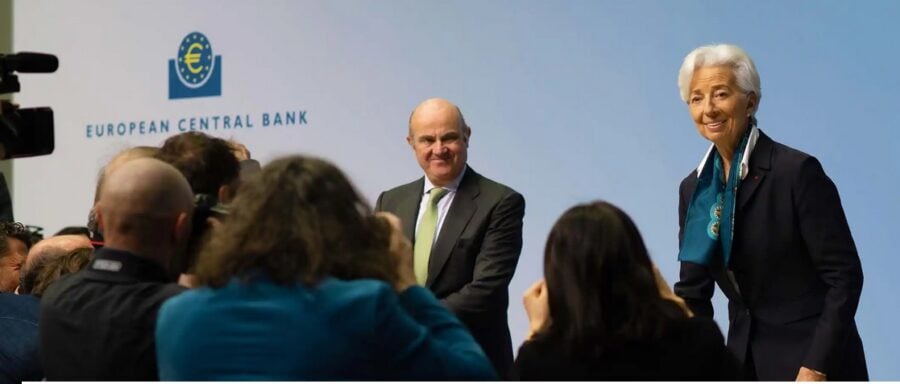In the midst of rampant inflation in the euro zone, the European Central Bank will almost certainly end its asset purchases at its meeting tomorrow, Thursday, and send a “telegram” to raise interest rates next July for the first time in 11 years.
The meeting of the Board of Governors tomorrow is an important turning point after years of low-cost monetary policies.
In recent years, the ECB has maintained minimum interest rates by buying assets, especially public debt securities, from the markets, allowing households, companies and governments to borrow on good terms.
According to this policy that began in 2014, banks are still charged a negative 0.5 percent fee on their deposits with central banks, to encourage them to distribute them in the form of loans.
The increase is inevitable
The question today is no longer whether or not the central bank will raise rates like other central banks at its July meeting, but rather how much of a rate will it decide on, be it a 50 basis point increase, or a smaller 25 basis point move. The most likely outcome is a “slow and steady” message, which could disappoint the single currency Euro.
Expectations indicate that the ECB will approve in July a 25 basis point increase to bring the interest rate back to zero, to be followed by another similar one in September.
Tomorrow’s meeting is a turning point
ECB officials may prefer to raise interest rates immediately at tomorrow’s meeting as inflation continues to grow, but doing so would violate their future direction. So, it is unlikely to do so.
Alternatively, this meeting is very likely to be used as a springboard to prepare the markets for an interest rate hike on the 6th of July.
On this basis, the meeting of the Board of Governors tomorrow is an important turning point.
The meeting comes days after the disclosure of new figures for inflation rates in the euro area, which reached the limits of 8.1 percent within one year in May in the euro area. It is four times higher than the ECB’s 2 percent target.
The decision to increase is difficult
The timing of this decision is undoubtedly difficult in the midst of high prices exacerbated by the war in Ukraine and poorer purchasing power on the back of slow growth, in France as in Germany. The central bank is facing a difficult choice. A failure to raise interest rates risks fueling inflationary trends. And if it decides to increase it too quickly, it could precipitate a recession, by affecting the borrowing capacity of households and firms.
Earlier, the ECB had clearly stated its intentions. Asset purchases will end this month, before an interest rate hike next month.
Even ECB President Christine Lagarde announced that the central bank intends to exit negative interest rates by the end of September. She said at the end of May that “it is appropriate for (monetary) policy to return to more normal parameters” in the face of inflation.
Also, Morgan Stanley expects the ECB to exit negative interest rates in September.
Barclays sees the ECB deposit rate at 0.75 percent by the first quarter of 2023, and a temporary suspension of this measure after that.
In any case, new economic forecasts to be published tomorrow Thursday, taking into account the consequences of the war in Ukraine, will help determine monetary direction.








